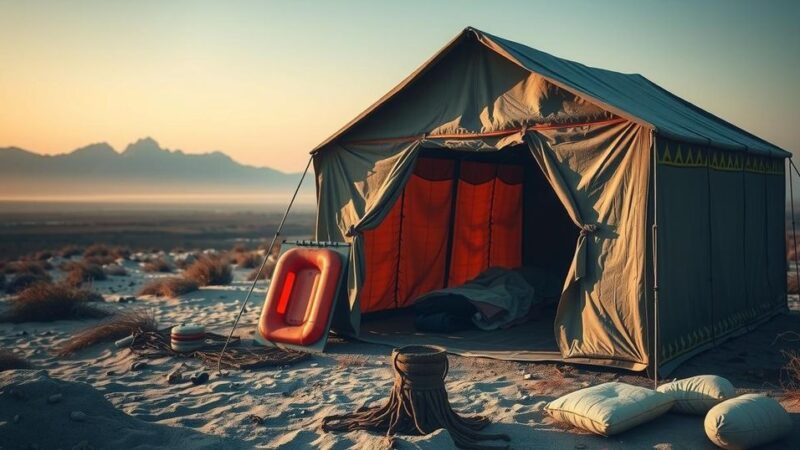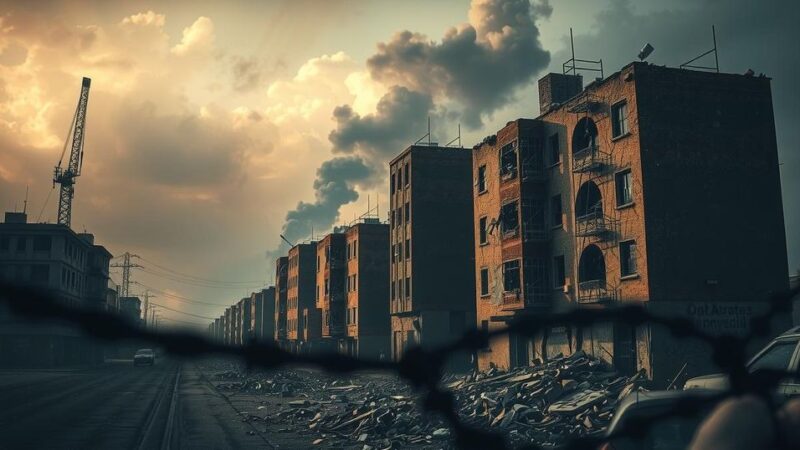Thirteen foreign peacekeepers have been killed in clashes with M23 rebels in the Democratic Republic of Congo. The UN is evacuating staff from Goma, and international leaders urge for an immediate end to the violence. The conflict has resulted in significant civilian casualties and displacement, prompting growing concerns over humanitarian conditions in the region.
Thirteen peacekeepers have tragically lost their lives in the Democratic Republic of Congo during confrontations with M23 rebels. The fatalities include nine South African soldiers, three from Malawi, and one Uruguayan, all of whom were engaged in efforts to repel the rebel advances toward Goma, a regional focal point of conflict. The international community, led by French President Emmanuel Macron, is calling for an urgent cessation of violence amid rising tensions and heightened military actions.
In light of the escalating violence, the United Nations is evacuating non-essential personnel from Goma, home to over one million residents. A Security Council meeting originally scheduled for Monday has been moved to Sunday due to the worsening situation. With the M23 demanding the surrender of Congolese troops, DR Congo has severed diplomatic relations with Rwanda, accusing it of supporting the insurgents.
Rebel hostilities intensified following the murder of a Congolese military governor by M23 fighters amid ongoing territorial gains by the rebels. Macron has discussed the situation with the leaders of DR Congo and Rwanda, emphasizing the urgent need for de-escalation. Notably, the EU’s foreign policy chief has condemned Rwanda’s backing of M23, while Angolan President Joao Lourenco has called for an immediate stop to the fighting to safeguard civilian lives.
The conflict has triggered widespread displacement, with over 400,000 people fleeing their homes since the year began. Reports indicate that more than 200 civilians have already been killed in areas controlled by the M23. Human Rights Watch has raised alarms over grave abuses perpetrated by both the Congolese army and the rebels, further complicating the dire humanitarian situation in the region.
The M23 movement has gained significant control over eastern DR Congo since 2021, leading to ongoing international scrutiny concerning Rwanda’s supporting role. The Rwandan government has neither confirmed nor denied allegations of involvement, instead alleging that the Congolese government is collaborating with individuals implicated in the 1994 Rwandan genocide against Tutsi ethnic groups. The M23 originated from another rebel faction in 2012, professedly to protect the Tutsi community, although accusations regarding its motives involving resource exploitation have surfaced.
The ongoing conflict in the Democratic Republic of Congo has been fueled by the M23 rebel group, which emerged in 2012 and claims to represent the interests of the Tutsi population. This area is rich in minerals, sparking global interest and controversy, particularly regarding allegations of Rwandan support for the rebels. The humanitarian situation continues to deteriorate, with hundreds of thousands displaced and severe civilian casualties reported.
The tragedy of thirteen peacekeepers killed underscores the grave security challenges in the Democratic Republic of Congo amidst intensifying conflicts led by the M23 rebels. International efforts to mediate the situation become increasingly urgent, as civilian safety is at risk. Diplomatic relations deteriorate between DR Congo and Rwanda, further complicating the humanitarian landscape exacerbated by violence and large-scale displacements.
Original Source: www.bbc.co.uk







